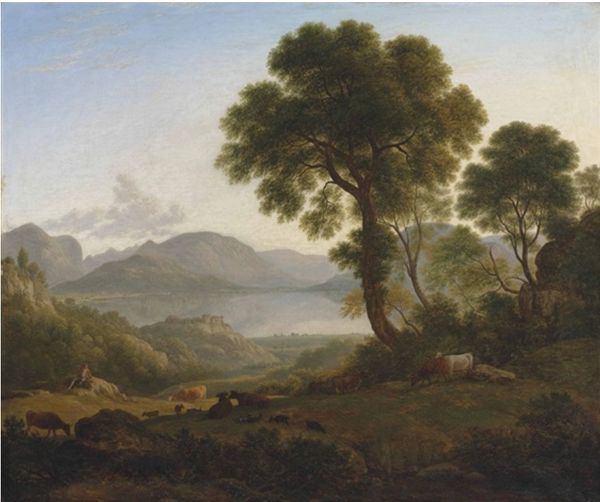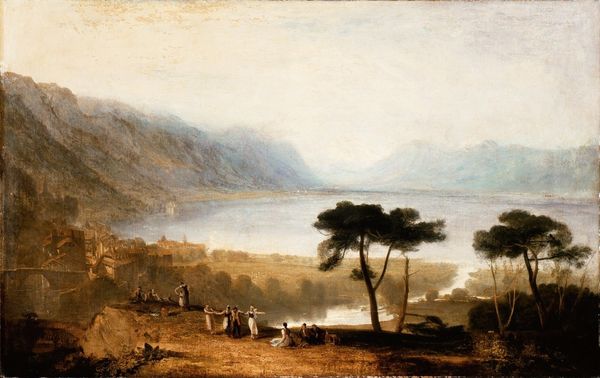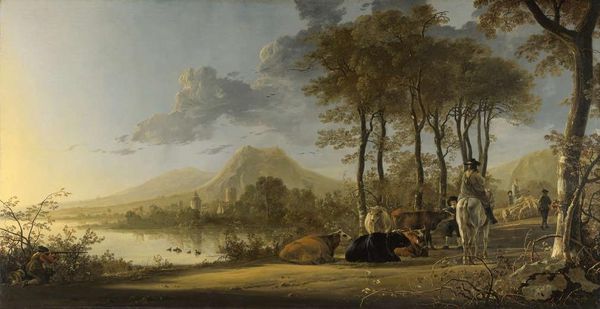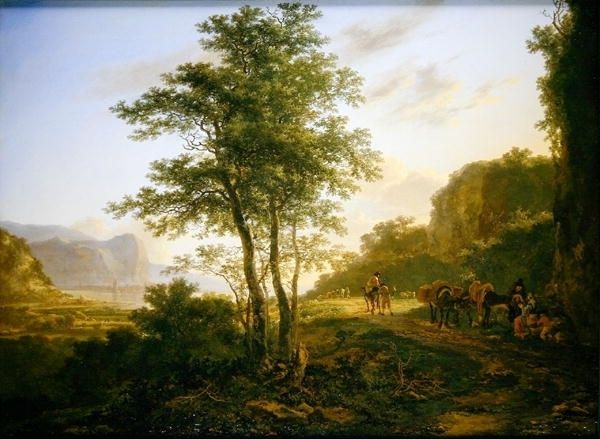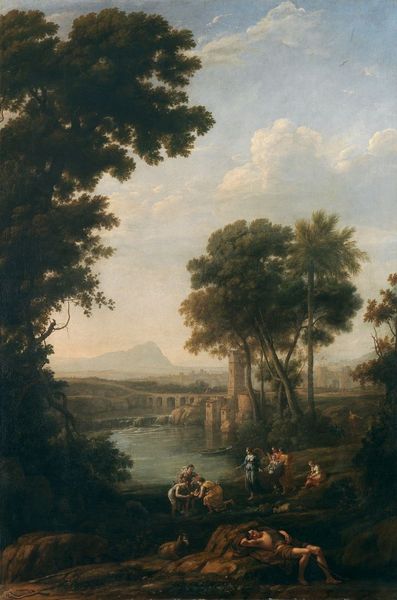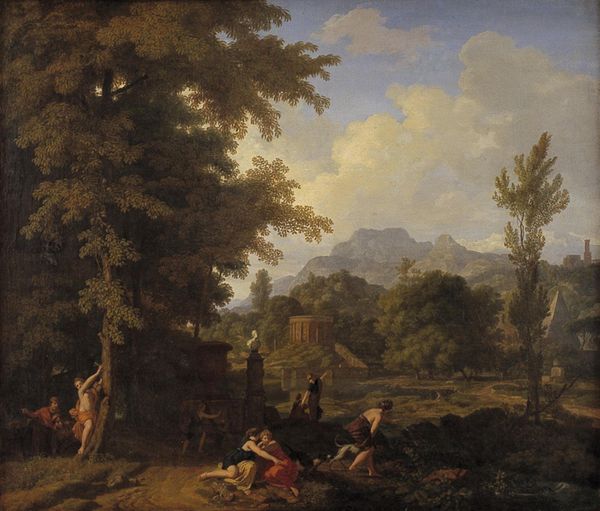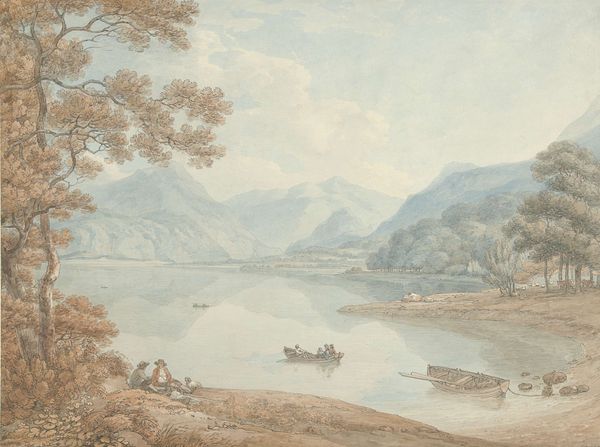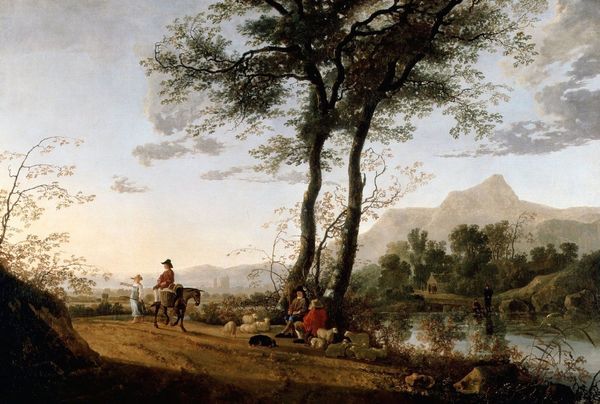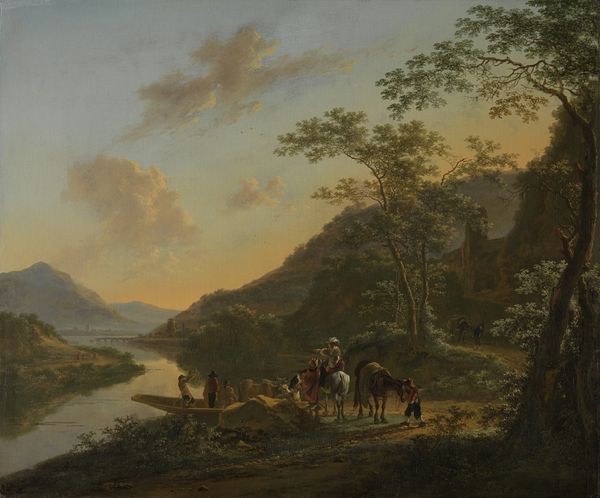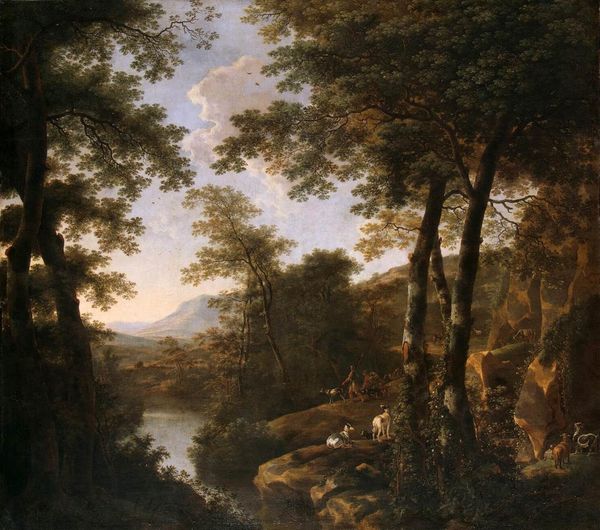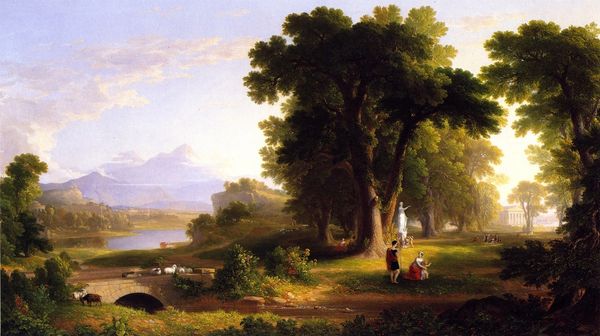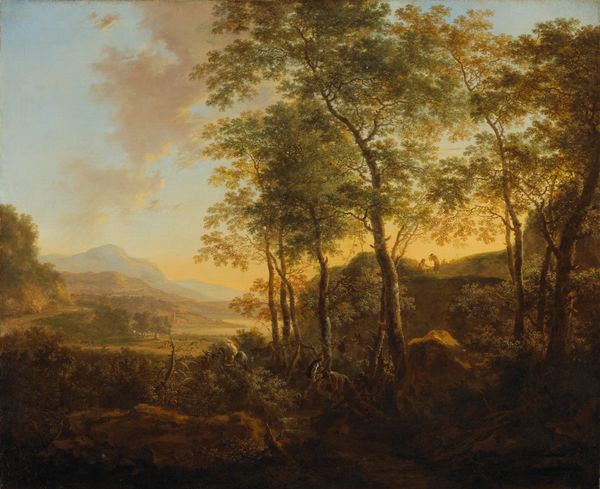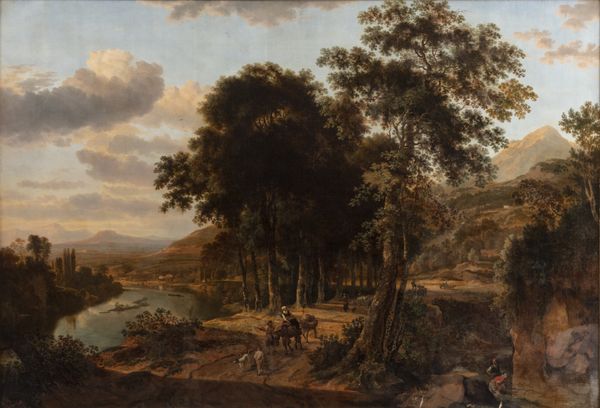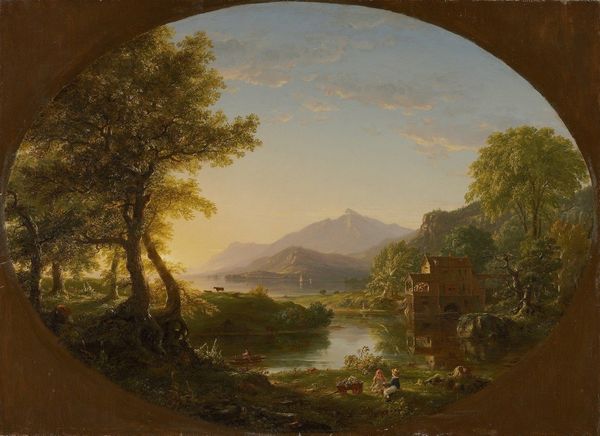
painting, plein-air, oil-paint
#
narrative-art
#
painting
#
plein-air
#
oil-paint
#
landscape
#
classical-realism
#
figuration
#
oil painting
#
romanticism
#
history-painting
Copyright: Public domain
Editor: So, this is "Paysage Montagneux Au Printemps" by Jean-Joseph-Xavier Bidauld, an oil painting. There's a lovely idyllic feel to it, with figures populating a landscape, but it also seems a little staged. What do you see in this piece in terms of its broader cultural context? Curator: That sense of being staged is crucial. Bidauld wasn't just capturing nature; he was participating in a historical shift in how landscapes were being viewed and presented. How does this compare to, say, earlier landscape painting that simply documented locations? Editor: I guess it feels more constructed, less like a pure record. More like a carefully arranged scene, if that makes sense? Curator: Precisely. We see the rise of the picturesque aesthetic, where the goal isn't just accuracy but a deliberately beautiful and pleasing composition. Consider the way the figures are placed, almost as actors in a play. It reflects the growth of a viewing public increasingly used to experiencing the world through art, reshaping their perceptions of actual landscapes. Were paintings such as these influencing the placement and development of city parks at this time? Editor: Interesting, so this wasn’t just about representing nature, but influencing how people interacted with nature and the visual culture surrounding them. Curator: Exactly. And who had access to those carefully framed viewpoints, both in art and in reality? Whose vision of nature was being privileged? Editor: That definitely gives me something to think about. It’s no longer just a pretty picture, it becomes a statement about society and its values. Thanks for opening my eyes to the sociopolitical element in even a pastoral painting. Curator: It goes to show, landscapes aren’t neutral backdrops. They carry complex meanings. I've never really noticed the political connections embedded in landscapes like this before; now I realize the narrative can shift so dramatically when they’re properly contextualized.
Comments
No comments
Be the first to comment and join the conversation on the ultimate creative platform.
